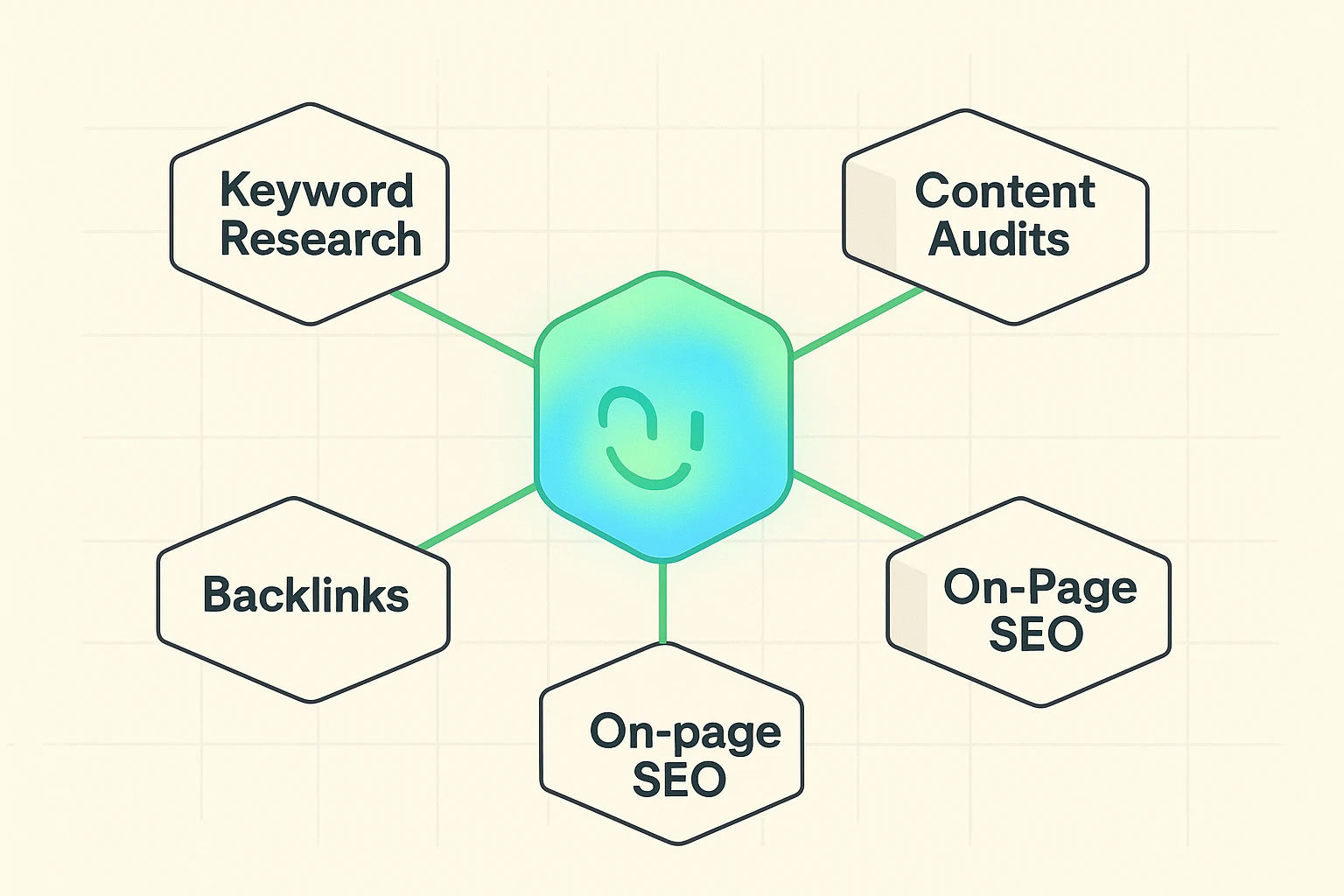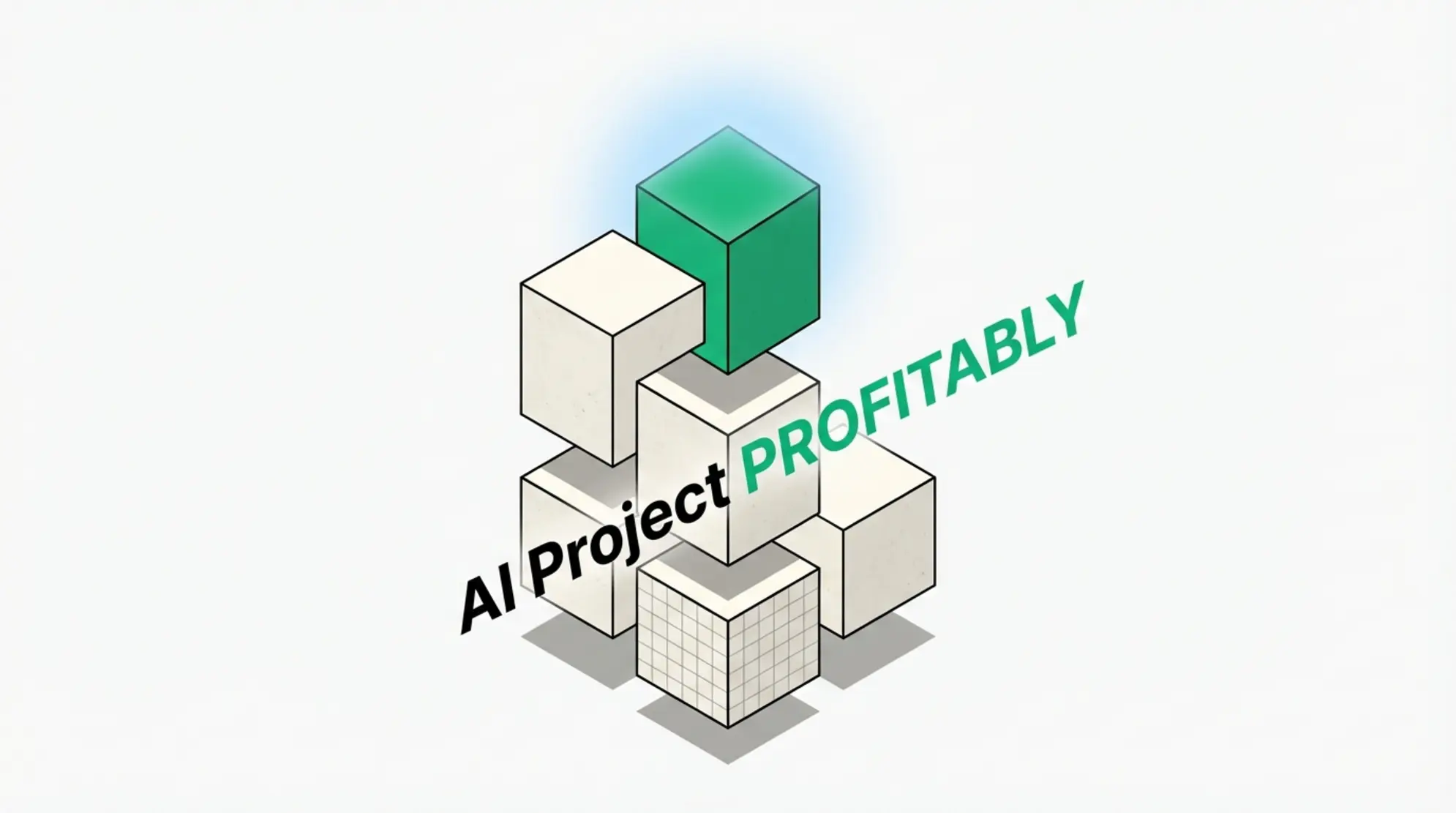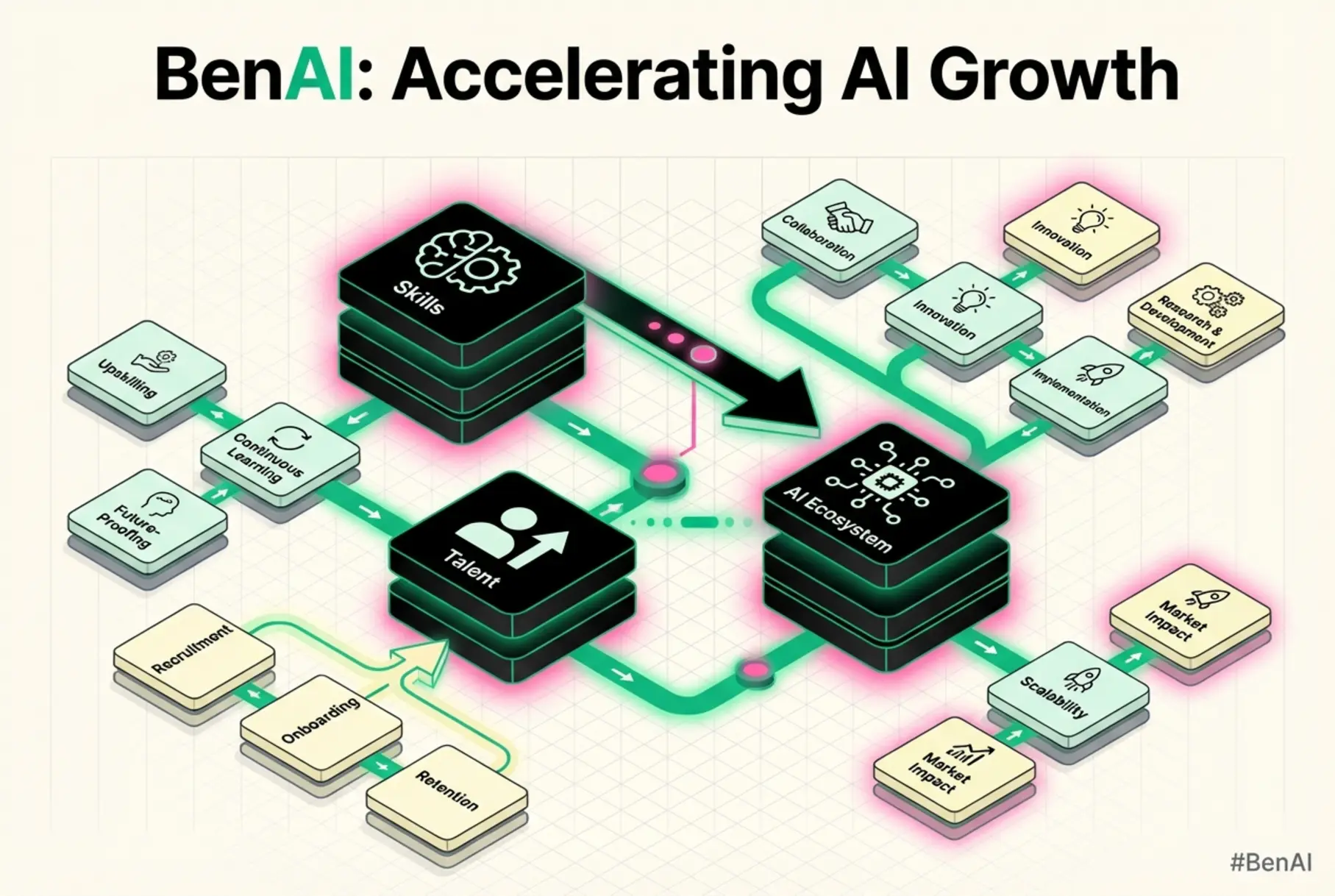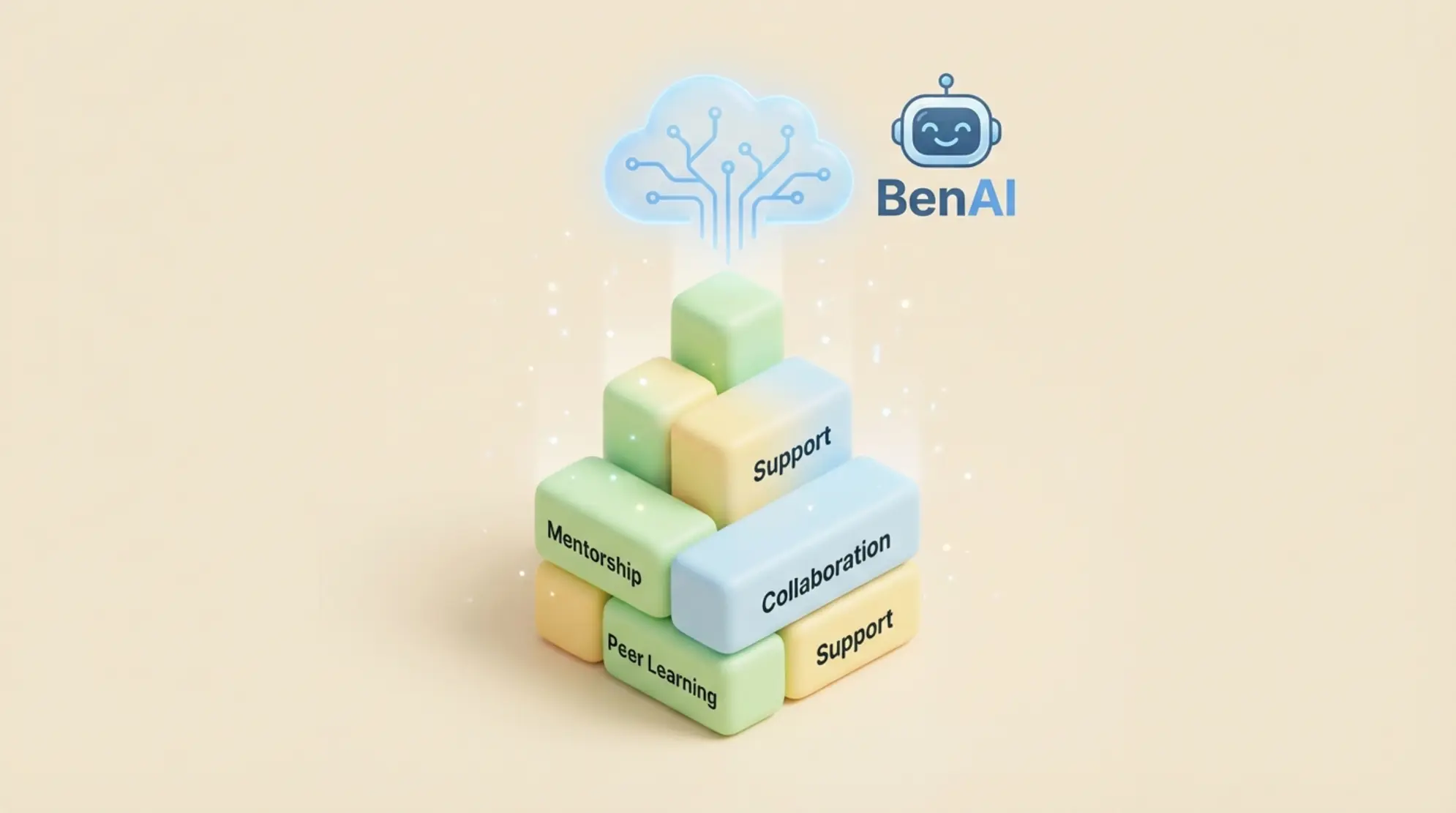Reducing Manual SEO Workflows with AI: A Definitive Guide for Decision-Makers
Reducing manual SEO workflows with Artificial Intelligence (AI) directly addresses the significant industry shift towards automation, empowering professionals to reclaim valuable time for strategic initiatives. This comprehensive guide provides decision-makers with actionable insights, data-backed strategies, and practical tools to streamline repetitive SEO tasks, ultimately enhancing efficiency and accelerating growth. By integrating AI into their operations, businesses achieve improved productivity, cost savings, and a competitive edge in rapidly evolving digital landscapes.
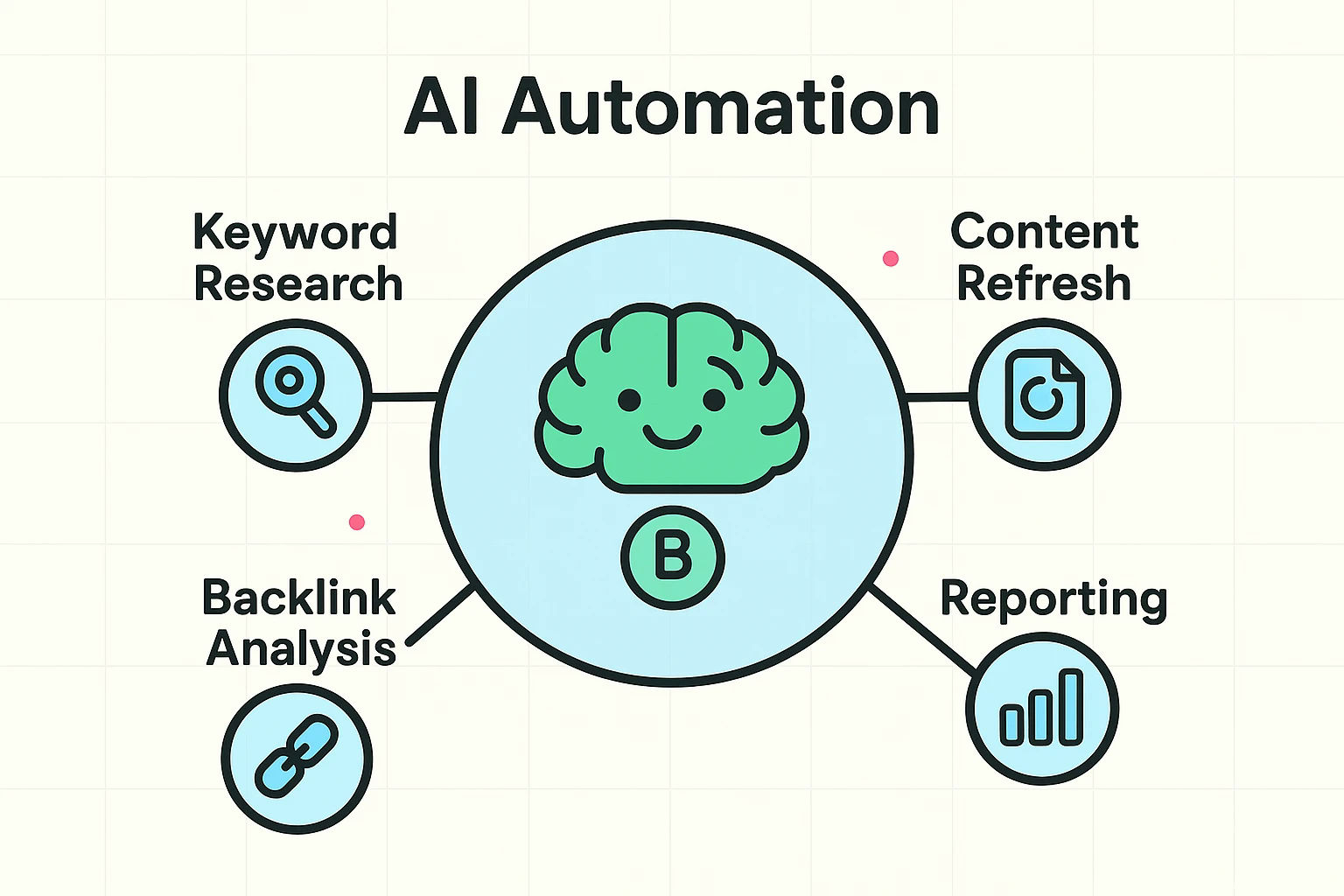
What are the Core Challenges of Manual SEO Workflows?
Manual SEO workflows present numerous challenges for marketing teams, often consuming significant time, resources, and human capital. These labor-intensive tasks directly hinder agility, scalability, and strategic focus within an organization. SEO professionals frequently encounter obstacles such as data overwhelm, repetitive analysis, and the sheer volume of content requiring optimization.
The primary issues arising from manual SEO processes include:
- Time Consumption: Routine tasks, like extensive keyword research, content audits, and backlink profile analysis, demand hours, days, or even weeks. This manual effort delays execution of crucial campaigns.
- Scalability Limitations: Growing businesses find it difficult to expand their SEO efforts proportionally with increased demand, as manual operations do not scale efficiently. Adding new markets or content verticals exacerbates this constraint.
- Data Overwhelm: Analyzing vast datasets from Google Analytics, Search Console, and various SEO tools manually becomes prone to human error and incomplete insights. Extracting meaningful patterns requires advanced processing capabilities.
- Repetitive Tasks: Many SEO functions, including meta description generation, broken link checking, and basic content optimization, are inherently repetitive. These mundane activities reduce employee engagement and job satisfaction.
- Inconsistent Quality: Human fatigue or differing expertise levels across a team lead to inconsistencies in the quality and thoroughness of SEO implementation. Automation ensures standardized application of best practices.
- Delayed Action: Identifying new opportunities or addressing critical issues (e.g., sudden ranking drops, competitive shifts) takes longer with manual processes, impacting responsiveness. Swift action is critical for competitive advantage.
Addressing these challenges necessitates a shift towards intelligent automation. AI-powered tools offer a definitive solution by offloading these burdens, allowing SEO teams to allocate their expertise to high-impact strategic planning and creative execution.
How Does AI Reduce Manual SEO Workflows?
AI reduces manual SEO workflows by automating repetitive, data-intensive tasks, thereby freeing up SEO professionals for higher-level strategic work. This fundamental shift leverages machine learning algorithms and natural language processing (NLP) to perform analyses, generate insights, and even create content at a scale and speed unattainable by human effort alone. The integration of AI tools transforms weeks of manual work into mere minutes, according to a 2025 Typeface.ai Webinar.
AI-driven automation fundamentally changes how SEO teams operate, offering several distinct advantages:
- Enhanced Efficiency: AI systems process vast amounts of data—ranking fluctuations, competitor strategies, user behavior—significantly faster than human analysts. This speed translates into quicker identification of opportunities and threats, improving reaction times.
- Increased Accuracy: Machine learning models identify subtle patterns and correlations in data that humans often miss, leading to more precise keyword targeting, content recommendations, and technical SEO adjustments. AI mitigates human error in data interpretation.
- Scalable Operations: AI tools perform tasks across thousands of pages or keywords simultaneously, enabling SEO strategies to scale without a proportional increase in human resources. Businesses handle larger scopes of work more effectively.
- Cost Reduction: Automating routine tasks reduces the need for extensive manual labor, lowering operational costs associated with salaries and outsourcing for basic SEO functions. Companies reallocate budgets to strategic initiatives.
- Strategic Focus: By handling the mundane, AI allows SEO specialists to concentrate on complex problem-solving, creative content development, competitive differentiation, and long-term strategy formulation. This elevates the role of the SEO professional.
Evidence directly supports AI's impact on SEO teams, with 72% of companies utilizing AI SEO tools reporting a 30% reduction in manual SEO tasks, according to a 2025 Single Grain report. This quantified benefit illustrates the direct impact of AI on workflow optimization and operational efficiency.
Step-by-Step AI Automation Workflows for Key SEO Tasks
Implementing AI into SEO workflows requires structured, actionable steps that integrate automation seamlessly into existing operations. These workflows transform time-consuming manual processes into efficient, AI-driven operations, allowing teams to deliver superior results more consistently. Organizations deploy specific AI tools to manage distinct aspects of SEO, from initial research to ongoing optimization.
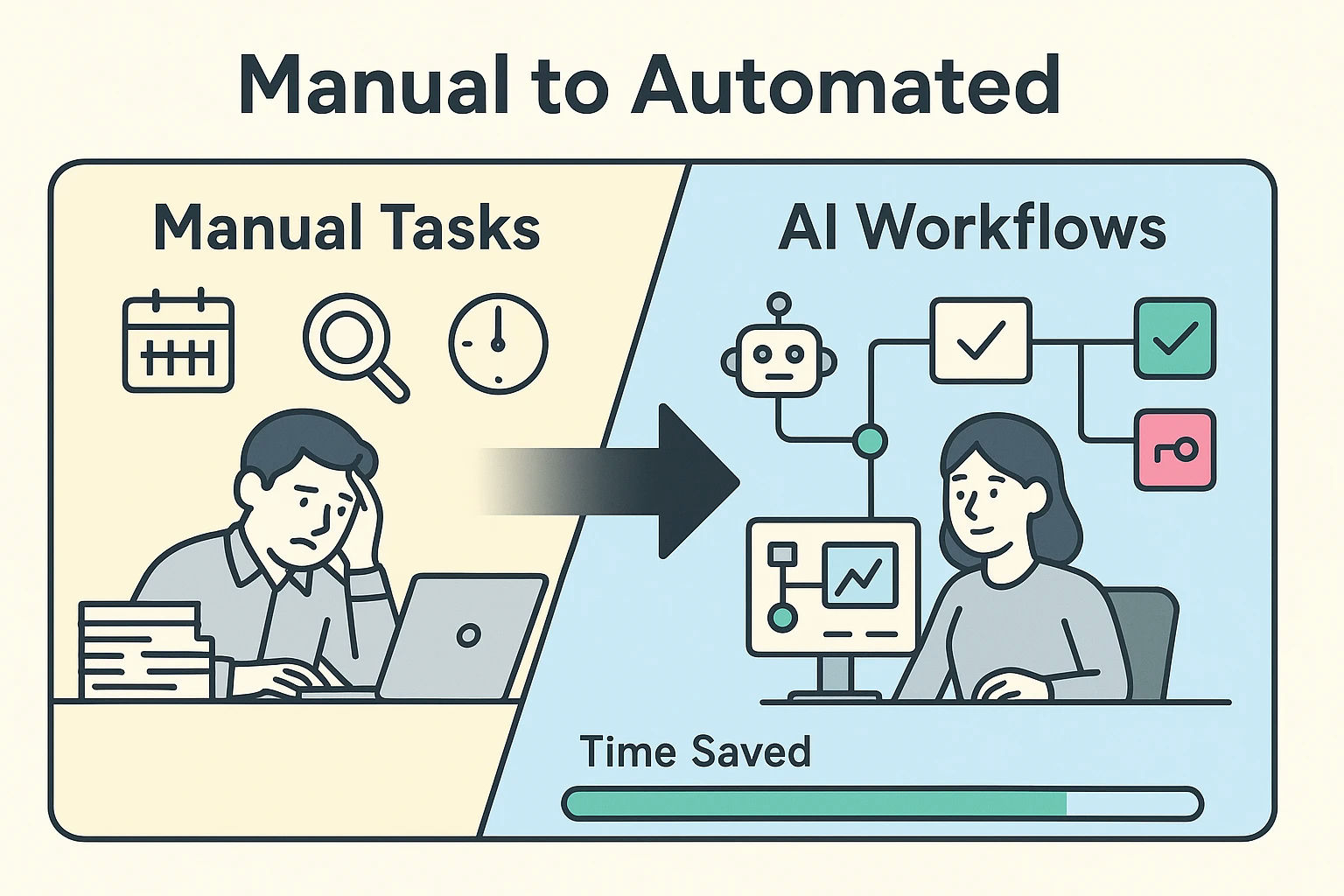
How to Automate Keyword Research and Content Gap Analysis?
Automating keyword research and content gap analysis enables SEO teams to identify high-value opportunities and competitive blind spots with unprecedented speed and accuracy. AI algorithms process vast amounts of search data, including trending topics, competitor keyword portfolios, and user intent signals, to pinpoint strategic keywords. This process eliminates the tedious manual sifting through keyword lists and performing individual competitive audits.
Implement this strategy using these three steps:
- AI-Driven Keyword Identification: Utilize AI-powered platforms that analyze search engine results pages (SERPs) for relevance, search volume, and difficulty, automatically generating comprehensive keyword lists. Tools often assign "personas" or agents, like "Reva" for research, to categorize keywords by intent (e.g., informational, transactional, navigational). This initial phase provides a foundational understanding of the target audience's queries.
- Automated Content Gap Detection: Deploy AI agents to compare an existing content inventory against competitor content and target keyword clusters, identifying missing topics or under-optimized areas. These tools highlight opportunities where competitors rank, but the current site does not, providing a clear roadmap for new content creation or updates. For a deeper dive into this, explore AI Keyword and Content Gap Analysis.
- Prioritized Actionable Insights: The AI system then prioritizes these content gaps based on potential impact, competitive landscape, and estimated ROI. This output guides content strategists in developing a focused content calendar that aligns with business objectives and leverages identified high-potential keywords.
Success indicators include a 25% increase in discovered high-potential keywords, a 15% reduction in time spent on manual keyword sorting, and a clear list of content opportunities ranked by strategic importance.
How can AI Streamline Content Refresh and Optimization?
AI streamlines content refresh and optimization by systematically analyzing existing content for performance, readability, and semantic relevance, then generating actionable recommendations for improvement. This process moves beyond basic keyword insertion, focusing on topical authority and comprehensive coverage. AI tools assess content against top-ranking pages, identifying semantic gaps, outdated information, and areas for structural enhancement.
Streamline this process with these three steps:
- Automated Content Audit and Performance Analysis: AI platforms crawl website content, evaluating pages based on metrics such as organic traffic, keyword rankings, engagement rates, and freshness. The system identifies underperforming articles, outdated information, and content decay that require immediate attention.
- Semantic Optimization Recommendations: AI analyzes the semantic landscape of high-ranking content for target keywords, suggesting entities, subtopics, and related concepts that enhance topical depth and authority. It provides specific recommendations for expanding existing paragraphs, adding new sections, or rephrasing sentences to improve relevance and readability. For comprehensive guidance, refer to the AI SEO Automation Guide.
- Automated Content Generation (Drafting Support): Some advanced AI tools assist in drafting new sections or rewriting existing passages based on the optimization recommendations, including meta descriptions, titles, and even entire paragraphs. While human oversight remains crucial for factual accuracy and brand voice, this significantly accelerates the content creation and update cycle. According to Vendasta's 2025 report, automating content lifecycle management with AI boosts output efficiency by over 40%.
Success indicators include a 30% reduction in time spent on manual content audits, a 10% average increase in organic traffic to refreshed pages, and a measurable improvement in content quality scores.
What AI Tools are Best for Backlink Analysis and Outreach?
AI tools enhance backlink analysis and outreach by automating data collection, identifying high-quality link opportunities, and streamlining communication. These platforms sift through vast link profiles, detect toxic links, and prioritize domains for outreach based on authority and relevance. This capability transforms a historically manual, often tedious, process into a data-driven, efficient workflow.
Optimize your backlink strategy with these three steps:
- Automated Backlink Profile Auditing: AI-powered tools crawl an entire backlink profile, identifying spammy links, broken links, and opportunities for disavowal. These tools score individual links based on domain authority, relevance, and anchor text distribution, providing a clear picture of link health. An AI agent, perhaps named "Linka," could specifically manage this analysis, flagging potential issues.
- Intelligent Link Opportunity Discovery: AI algorithms analyze competitor backlink profiles and relevant industry content to uncover new, high-authority link opportunities that align with specified criteria. These systems identify domains that link to similar content or competitors but not yet to the target site, streamlining prospecting.
- Streamlined Outreach Campaign Management: Modern AI tools integrate with email platforms to personalize outreach messages based on prospect data and link opportunity context. They manage follow-up sequences and track response rates, optimizing the outreach process. For broader AI marketing solutions that include such capabilities, visit AI Marketing Solutions.
Success indicators include a 20% increase in qualified link opportunities identified, a 15% improvement in outreach response rates, and a measurable reduction in the time required to conduct backlink audits.
What are the Measurable Benefits of AI in SEO Workflows? (Case Studies & ROI)
AI integration into SEO workflows delivers measurable benefits, particularly in terms of time savings, increased efficiency, and significant return on investment (ROI). Organizations implementing these technologies consistently report substantial improvements across various key performance indicators. The benefits extend beyond mere task automation, impacting the overall strategic capability and profitability of marketing operations.
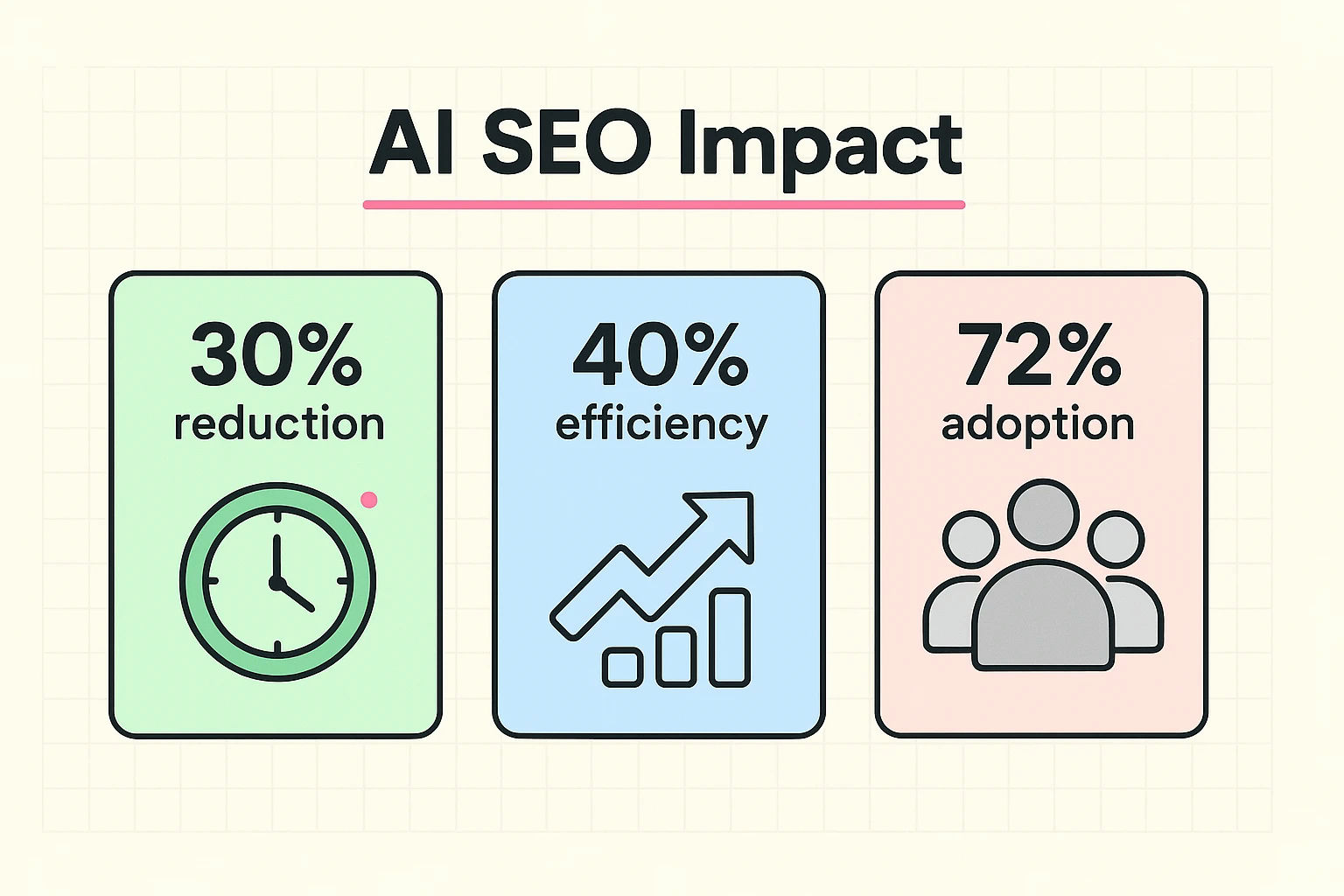
Here are specific, data-backed benefits:
- Significant Reduction in Manual Tasks: According to a Single Grain report in April 2025, 72% of companies using AI SEO tools report a 30% reduction in manual SEO tasks. This directly translates to thousands of hours saved annually, allowing teams to refocus efforts on higher-value activities like strategy development and client engagement.
- Accelerated Workflow Completion: AI-powered workflows can transform weeks of manual work into minutes, as highlighted by a Typeface.ai Webinar in 2025. Tasks such as comprehensive content audits or large-scale keyword mapping, which traditionally bottleneck projects, are now executed with unprecedented speed.
- Enhanced Content Output Efficiency: Automating content lifecycle management with AI boosts output efficiency by over 40%, Vendasta's blog stated in September 2025. This efficiency gain allows for the production of more optimized content, leading to broader keyword coverage and increased organic visibility.
- Improved Decision-Making: AI processes vast datasets to identify patterns and generate insights that human analysis might miss. This leads to more informed decisions regarding keyword targeting, content strategy, and technical SEO improvements, resulting in more effective campaigns.
- Scalable SEO Operations: Businesses leveraging AI can scale their SEO efforts without a proportional increase in human resources. This allows for expansion into new markets, launching more content initiatives, or managing larger client portfolios more effectively.
These measurable outcomes underscore the imperative for organizations to adopt AI within their SEO operations. The investment in AI tools yields tangible ROI through reduced operational costs and increased strategic output.
How to Implement and Manage AI SEO Workflows Effectively? (Integration & Risk Management)
Implementing and managing AI SEO workflows effectively requires a strategic approach that balances automation with human oversight, ensuring both efficiency and quality. Successful integration of AI tools minimizes common pitfalls, maximizes their benefits, and maintains the ethical integrity of SEO practices. Decision-makers must prioritize careful planning, phased deployment, and continuous monitoring to achieve optimal results.
Effective AI integration and risk management involve these key considerations:
- Phased Implementation Strategy: Introduce AI tools gradually, starting with lower-risk, highly repetitive tasks (e.g., meta tag generation, basic data extraction). This phased approach allows teams to adapt, troubleshoot, and refine processes before scaling to more complex functions. A comprehensive AI SEO Automation Guide offers detailed frameworks for deployment.
- Maintain Human Oversight and Validation: AI should augment, not entirely replace, human expertise. SEO professionals must review AI-generated content, analysis, and recommendations for accuracy, brand voice, and strategic alignment. This manual review acts as a critical safeguard against automation errors and ensures quality control. Forum discussions, such as those on SEO Chat Forum, frequently highlight concerns about over-reliance on AI at the expense of quality.
- Data Management and Quality Assurance: Ensure the data feeding into AI systems is clean, relevant, and comprehensive. Poor data quality leads to flawed AI outputs. Establish robust processes for data ingestion, transformation, and validation to maximize the reliability of AI-driven insights.
- Training and Skill Development: Invest in training SEO teams on how to effectively use AI tools, interpret their outputs, and integrate them into their daily workflows. This upskilling empowers professionals to leverage AI as a powerful assistant rather than viewing it as a replacement.
- Ethical Considerations and Transparency: Address concerns about AI's potential for biased outputs or manipulative practices. Establish clear guidelines for AI usage that prioritize ethical SEO, user experience, and compliance with search engine policies. Transparency about AI's role in content creation builds trust with audiences.
- Continuous Monitoring and Iteration: Regularly monitor the performance of AI-driven workflows, track key metrics, and gather feedback from the team. Use these insights to refine AI models, adjust parameters, and identify new opportunities for automation, ensuring ongoing optimization and adaptation.
By adhering to these principles, organizations successfully harness the power of AI to transform SEO operations while mitigating potential risks. This balanced approach ensures sustainable growth and maintains high standards of quality.
Choosing the Right AI SEO Tools: Key Considerations
Choosing the right AI SEO tools requires careful consideration of specific needs, integration capabilities, and the unique challenges faced by an organization. The market offers a diverse range of AI-powered platforms, each with distinct strengths and functionalities. Decision-makers must evaluate tools based on their ability to address identified pain points, enhance existing workflows, and provide actionable insights.
Consider these key factors when evaluating AI SEO tools:
- Specific Workflow Alignment: Prioritize tools that directly address the most time-consuming or complex manual tasks identified within your SEO operations (e.g., keyword research, content optimization, backlink analysis). Some tools specialize in particular areas, such as n8n for workflow automation, as highlighted on Medium (Hypestudio).
- Integration Capabilities: Assess how well the AI tool integrates with existing SEO platforms, content management systems (CMS), and analytics dashboards. Seamless integration minimizes data silos and streamlines data flow, preventing additional manual workarounds.
- Data Accuracy and Reliability: Evaluate the quality and sources of data that the AI tool utilizes. Reliable data inputs are crucial for accurate insights and effective automation. Look for tools that cite reputable data sources and offer transparent methodologies.
- Scalability and Flexibility: Choose tools that can grow with your business and adapt to evolving SEO strategies. Scalable solutions handle increasing data volumes and diverse projects, while flexible platforms allow for custom workflows and rule sets.
- User Experience and Support: Opt for tools with intuitive interfaces and comprehensive support resources, including tutorials, documentation, and responsive customer service. Ease of use ensures faster adoption and reduces the learning curve for SEO teams.
- Cost-Effectiveness and ROI: Compare pricing models against the expected return on investment, considering both direct cost savings from automation and indirect benefits like improved strategic output. A tool's value extends beyond its subscription fee to its impact on overall productivity.
- Reputation and Trust: Consider tools from authoritative brands with proven track records in the SEO or AI space. Brands like Moz, for example, build trust through their industry expertise and often humanize AI functions with "personas" like Reva and Linka to simplify complex concepts.
By systematically evaluating these factors, organizations select AI SEO tools that best align with their strategic objectives, leading to more efficient, data-driven, and impactful SEO campaigns.
Frequently Asked Questions (FAQs) About AI SEO Automation
Decision-makers often have specific questions regarding the adoption, benefits, and implications of integrating AI into their SEO operations. Addressing these common queries provides clarity and confidence in evaluating AI as a strategic asset.
How does AI improve SEO workflows?
AI improves SEO workflows by automating repetitive, data-intensive tasks such as keyword research, content auditing, and competitive analysis, directly freeing up SEO professionals for strategic initiatives. According to a 2025 Single Grain report, 72% of companies utilizing AI SEO tools report a 30% reduction in manual SEO tasks. This improvement stems from AI's ability to process vast amounts of data quickly, identify complex patterns, and generate actionable insights with high accuracy.
What manual tasks can be fully automated?
Many manual tasks can be fully automated using AI, including:
- Keyword Research: AI identifies trending keywords, assesses difficulty, and clusters related terms based on semantic understanding.
- Content Auditing and Optimization: AI scans content for quality, identifies outdated information, and suggests improvements for readability, relevance, and semantic depth.
- Meta Description and Title Tag Generation: AI drafts optimized meta descriptions and title tags that incorporate target keywords and compel clicks.
- Technical SEO Audits: AI tools identify broken links, crawl errors, and site architecture issues, generating reports for immediate action.
- Backlink Prospecting and Analysis: AI discovers high-quality link opportunities and analyzes backlink profiles for toxicity or competitive gaps.
These tasks, while traditionally time-consuming, are now efficiently managed by AI, allowing SEO teams to focus on strategy rather than execution.
How to avoid pitfalls in AI-driven SEO?
Avoiding pitfalls in AI-driven SEO requires maintaining human oversight, validating AI outputs, and focusing on ethical deployment. Human review ensures that AI-generated content or recommendations align with brand voice, factual accuracy, and broader strategic goals. Without this human layer, there is a risk of producing generic content, overlooking nuanced market signals, or inadvertently violating search engine guidelines. Continuous monitoring of AI performance and regular algorithm updates are also crucial to adapting to evolving search landscapes.
What are best AI SEO tools in 2025?
The best AI SEO tools in 2025 typically excel in specific areas of automation and provide robust integration capabilities. While specific tools evolve, leaders often include platforms that:
- Automate Keyword Research: Providing deep insights into semantic gaps and intent.
- Enhance Content Creation/Optimization: Offering advanced content briefs, topic clustering, and rewriting suggestions.
- Streamline Technical Audits: Identifying issues across large websites with speed.
- Facilitate Backlink Analysis: Discovering quality opportunities and spotting toxic links.
Companies like Moz and Single Grain frequently highlight and review such tools, with some platforms even employing "AI personas" like "Reva" or "Linka" to humanize specific AI functions. Choosing the "best" tool depends on an organization's specific needs and budget.
Can AI replace SEO professionals entirely?
No, AI cannot replace SEO professionals entirely; instead, it serves as a powerful augmentation tool that handles repetitive tasks, freeing up human expertise for strategic, creative, and interpretive work. AI lacks the nuanced understanding of brand voice, complex strategic thinking, adaptability to unforeseen market shifts, and the critical human judgment required for ethical decision-making in SEO. SEO professionals remain essential for interpreting AI outputs, developing holistic strategies, fostering client relationships, and navigating the ever-evolving complexities of the digital marketing landscape. AI elevates the role of the SEO professional, transforming it from a task executor to a strategic innovator.
Conclusion: Empowering SEO with AI Automation
Empowering SEO with AI automation represents a pivotal shift from manual inefficiency to strategic innovation, providing decision-makers with a clear path to enhanced productivity and measurable ROI. The integration of AI tools dramatically reduces time-consuming manual workflows, enabling SEO professionals to concentrate on high-impact strategic initiatives. Organizations leveraging AI observe a 30% reduction in manual tasks and over 40% increased efficiency in content output, directly contributing to competitive advantage.
By strategically implementing AI for tasks like keyword research, content optimization, and backlink analysis, businesses overcome scalability limitations and data overwhelm. A balanced approach, combining AI's analytical power with human oversight, ensures accurate, ethical, and effective SEO campaigns. This strategic adoption not only optimizes operational costs but also positions teams to navigate the complexities of modern search engines with agility and precision.
For decision-makers seeking to transform their SEO operations, the path forward involves embracing AI as a core component of their strategy. Download our exclusive workflow templates and consult our AI SEO Automation Guide to immediately begin your journey towards a more efficient and impactful SEO future.
Join Our Growing AI Business Community
Get access to our AI Automations templates, 1:1 Tech support, 1:1 Solution Engineers, Step-by-step breakdowns and a community of forward-thinking business owners.
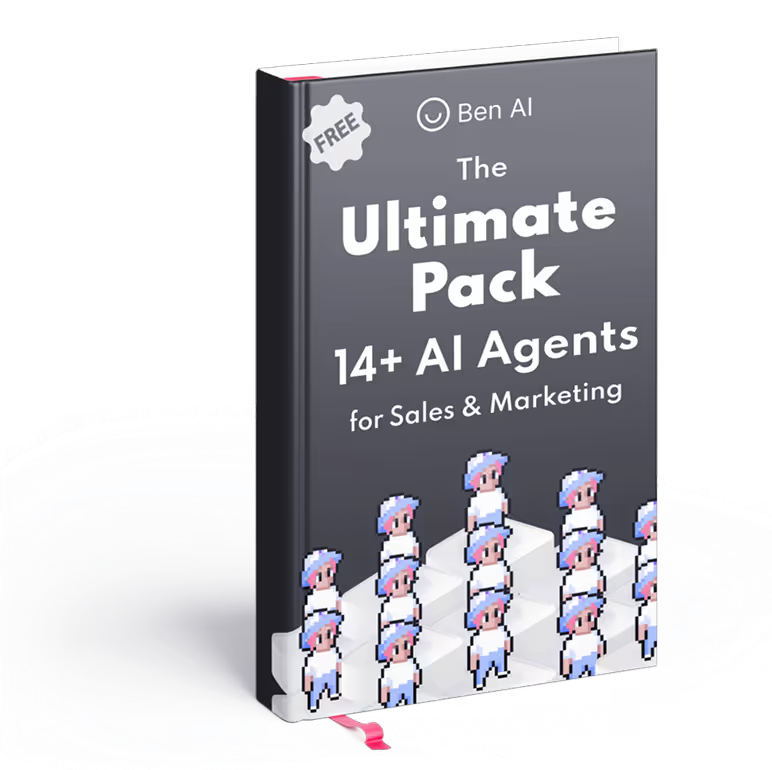
Latest Blogs
Explore our latest blog posts and insights.

